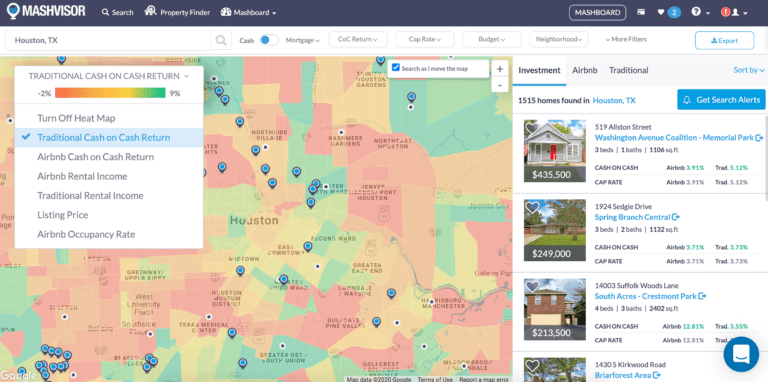What Is a Probate Sale? What Real Estate Investors Need to Know
5 Hot Neighborhoods for Airbnb Memphis in 2021
One key aspect of being a successful real estate investor is being able to find and buy investment properties at a discount. Apart from buying short sales and foreclosures, there’s another way for investors to do this – buying probate real estate. While a probate sale can provide investors with the opportunity to make substantial profits, it is more complex than a normal real estate transaction. So, in this article, we are going to walk you through what a probate sale is and help you decide if they are the right fit for you.
What Is a Probate Sale?
A probate sale refers to the sale of a property after the owner dies without a will (intestate) in order to divide it among beneficiaries. The process is administered by a probate court to ensure that it is sold at the best possible price.
Related: Why Is It a Good Idea for a Real Estate Investor to Make a Will?
How Does a Probate Sale Work?

Find out how a probate sale works.
Probate laws and processes may vary a little from one state to another. However, regardless of the location, specific procedures are followed to ensure that the property is sold at the best possible price. If you are considering buying probate real estate, it’s important that you take the time to learn how a probate sale operates. Here is the general probate sale process:
1. Appointment of the executor
When someone passes away without bequeathing their property, it is relinquished to the county court. The court then appoints an executor to carry out the property sale, usually the closest living relative of the deceased person.
2. Hiring of a probate real estate agent
The executor will hire a probate real estate agent to help in selling the property.
3. Property appraisal
The executer appoints an appraiser to estimate the value of the property. This will help them determine the list price with the help of the probate real estate agent.
4. Property listing
With the list price determined, the probate real estate agent will market it like any other property to attract buyers and draw a good offer. This can be through a listing on the MLS, putting up “For Sale” signs, and using their professional networks.
5. Interested buyers make offers
Interested buyers can make offers, which must be accompanied by at least a 10% down payment (in the form of a cashier’s check). Just like any other sale, the seller can accept, counter, or reject the offer.
While the executor may accept the highest bid, the sale is not official yet. The executor isn’t committed to that specific buyer or their offer since it’s subject to the probate court’s confirmation. The offer has to be passed on to the probate court, which will make the final decision on whether to accept the offer during a confirmation hearing. This may take time to schedule, usually 30 – 45 days after the court has been petitioned to confirm the sale.
During this time, the executor will be required to market the property at the new accepted price and will continue to receive new offers to try to get a higher bid for the house.
6. Court confirmation
On the court hearing date, all the interested buyers will be required to attend the court hearing to confirm the sale. The house will be sold in an auction format until the final bidder is left. The winning bidder will be required to immediately hand over a cashier’s check for their bid, which should be at least 10% of the overbid price. Otherwise, the property will be sold to the runner-up. However, if there are no other bidders to outbid the initial bid, the court will confirm the offer of the first buyer.
7. Contract signing
Once a buyer is confirmed, the executor and the buyer will sign a contract. This contract won’t include any contingencies.
Rental Property Investing for Beginners: 10 Best Tips
8. Property inspections
The buyer can request a home inspection but can’t back out of the purchase after discovering that the property has issues. If they withdraw their offer, they lose their deposit. The buyer has to decide what is best.
9. Closing
A few days after signing the contract, the buyer will close on the house.
Related: What Happens at a Real Estate Closing?
How Long Does a Probate Sale Take?
The entire probate process is usually time-consuming since it involves a lot of bureaucracy and paperwork. Many steps are involved, all of which are important. The supervision of the probate court also slows things down.
A probate sale can take anywhere from 9 months to several years to be completed. How long the process actually takes will depend on several factors such as where the executor lives, the number of beneficiaries, whether beneficiaries get along or not, etc. There’s the potential for the process to stall for a while if the beneficiaries bring some complications.
Pros of Probate Sales for Investors
1. Discounted Prices
The main benefit of buying these types of investment properties is that you can often find them at prices below market value and resell at a profit. Most of the time, the probate sale’s executor will want to get the property off their hands as quickly as possible. This makes them list it at reduced prices.
2. Less competition
Unlike short sale and foreclosure properties that usually have tough competition, most people don’t even know that probate sales exist or where to find them. Due to the complicated nature of a probate sale, many real estate investors will prefer not to be bothered with the hassle.
Cons of Probate Sales for Investors
1. The property is sold “as-is”
In a probate sale, the executor typically doesn’t do any repairs or improvements on the property before closing. This means that the buyer will be responsible for any repairs that will be needed. Therefore, it’s crucial to do a thorough home inspection before closing.
Related: Buying a House As-Is: A Guide for Real Estate Investors
2. Lengthy closing period
As mentioned before, the probate sale process usually takes longer than normal real estate transactions. This is because it involves a lot of bureaucracy.
3. Contingencies aren’t allowed
Unlike most real estate transactions, no contingencies are allowed in probate sale contracts.
How to Find Probate Listings
With the right steps, probate real estate investing can be a profitable strategy. Apart from understanding how a probate sale works, you also need to understand how to find probate real estate to succeed. Here is a list of ways to identify probate real estate deals:
- Work with a real estate agent with experience handling probate properties in your local housing market.
- If your county lists probate records online, you can find probate listings in your area on the county website from the comfort of your home.
- Contact your local probate court clerk and request a list of recently filed probate cases.
- Build relationships with probate attorneys by attending local networking events.
- Buy from companies that sell probate real estate leads.
- Check obituaries for information about recently deceased people and their beneficiaries.
Related: How to Find Motivated Sellers in Any Real Estate Market
The Bottom Line
Buying probate real estate can be a good option for investors who are looking for a bargain. However, a probate sale has a long waiting period and comes with several added risks compared to traditional real estate transactions. It’s important you carefully consider these risks especially if you are still a beginner real estate investor.
If you are set on buying a house in probate, make sure to work with an experienced probate professional (attorney or real estate agent). They can help you navigate the complex bureaucracy and save thousands of dollars on your purchase. Moreover, you want to run the numbers to ensure that the probate real estate you want to purchase will be profitable. You can do this quickly and accurately using Mashvisor’s real estate investment tools.
Start Your Investment Property Search!
AgentAppraisalHome Inspection
8 Cheapest States to Buy a House for Investment in 2021




Recent Comments